Politics
/ArcaMax
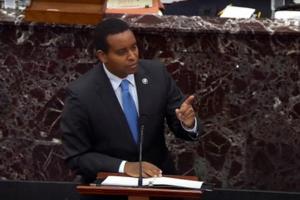
Judge again blocks DHS policy on lawmaker detention center visits
WASHINGTON — A federal judge more permanently stopped a Department of Homeland Security policy Monday that would require a seven-day notice for members of Congress to visit immigration detention centers.
In an opinion, Judge Jia M. Cobb of the U.S. District Court for the District of Colombia halted Homeland Security Kristi Noem’s latest ...Read more
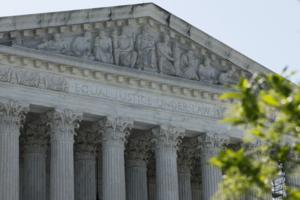
Supreme Court: California parents may be told about their transgender child at school
WASHINGTON — The Supreme Court revived a San Diego judge's order Monday and said parents have a right to know about their child's gender identity at school.
The decision came in a 6-3 order granting an emergency appeal from lawyers for Chicago-based Thomas More Society.
They said the student privacy policy enforced in California infringes on...Read more
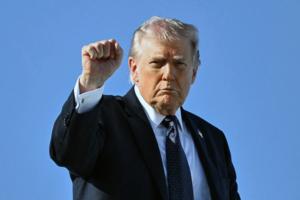
Trump to drop court fight against law firms targeted in executive orders
WASHINGTON — The Justice Department is backing out from a court battle with four major law firms that won rulings blocking President Donald Trump’s executive orders against them.
The DOJ plans to drop its appeals of the rulings, according to three sources familiar with the situation. The Wall Street Journal first reported the move.
The ...Read more
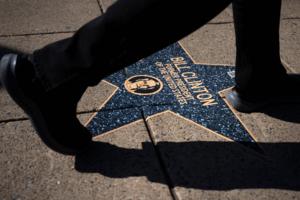
Bill Clinton told panel Larry Summers introduced him to Epstein
Former President Bill Clinton told the House panel investigating Jeffrey Epstein that former Treasury Secretary Larry Summers introduced him to the disgraced financier after Clinton departed the White House.
The panel released video on Monday of its questioning of the former president and his wife, former U.S. Secretary of State Hillary Clinton...Read more
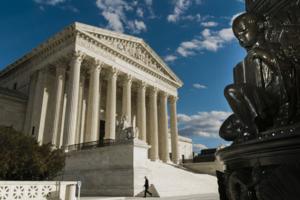
Supreme Court questions denying gun rights to marijuana users in test of the 2nd Amendment
WASHINGTON — The Trump administration on Monday urged the Supreme Court to limit the reach of the Second Amendment and deny gun rights to "habitual" users of drugs, including marijuana.
But most of the justices sounded skeptical. They questioned whether marijuana users are so dangerous they should not have firearms.
They noted too that ...Read more
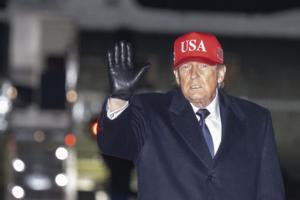
Neck rash caused by 'preventative skin treatment,' Trump doc says
President Trump’s doctor downplayed a red rash on the commander-in-chief’s neck as the byproduct of a “preventative skin treatment.”
The 79-year-old president raised further questions about his health Monday when he appeared at a Medal of Freedom event at the White House with a dark-red rash on the right side of his neck, blooming out ...Read more
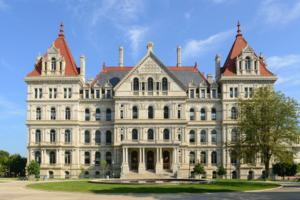
Supreme Court halts redrawing of New York congressional district
WASHINGTON — A divided Supreme Court intervened Monday to halt a New York state court-mandated redistricting of the Staten Island-based seat currently held by Republican Rep. Nicole Malliotakis.
The unsigned order pauses the effort to force the state to draw a new map for the seat on arguments that it violated the state constitution by ...Read more
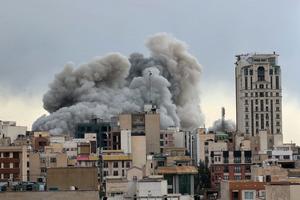
‘Destruction is not the same as political success’: US bombing of Iran shows little evidence of endgame strategy
Shortly after the opening salvo of U.S.-Israeli attacks on Iran on Feb. 28, 2026 – with missiles targeting cities across the country, some of which killed Supreme Leader Ayatollah Ali Khamenei – President Donald Trump declared the objective was to destroy Iran’s military capabilities and give rise to a change in government.
...Read more
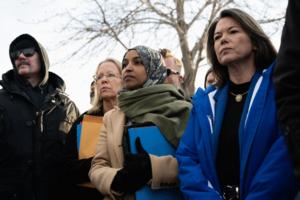
Rep. Angie Craig says she regrets past immigration vote in wake of Operation Metro Surge
Minnesota Rep. Angie Craig says she regrets her support for a bill pushed by the Trump administration last year that mandated the detention of undocumented immigrants arrested for certain crimes.
Craig’s change in position on the Laken Riley Act, outlined in an op-ed in the Minnesota Star Tribune published Monday, comes in the aftermath of ...Read more
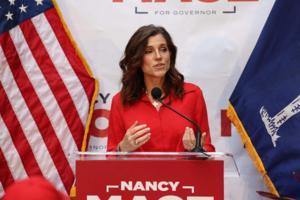
House Ethics to investigate Mace on reimbursement practices
The House Ethics Committee announced Monday it was conducting a review of a referral from the Office of Congressional Conduct into allegations against Rep. Nancy Mace regarding violations of House rules for expenses related to her Washington, D.C., lodgings.
The announcement comes after a Dec. 2 referral from the OCC, which found that the ...Read more
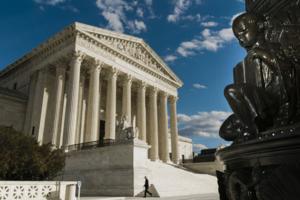
Supreme Court sounds wary of gun ban for drug users
WASHINGTON — The Supreme Court appeared ready Monday to limit the federal government’s ability to ban drug users from possessing firearms.
During oral arguments, a majority of the justices criticized the government’s prosecution of Ali Danial Hemani, who was found with a gun and admitted using marijuana. He was charged under a law ...Read more
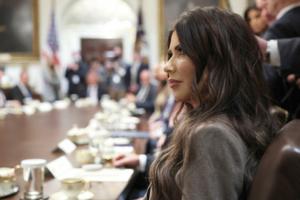
Kristi Noem set to face lawmakers amid immigration funding clash
WASHINGTON — Homeland Security Secretary Kristi Noem is set to testify this week at two separate congressional oversight hearings, her first time facing lawmakers since the fatal shooting of two Americans in Minnesota helped spark a funding showdown over the administration’s approach to immigration enforcement.
The hearings, Tuesday at the ...Read more
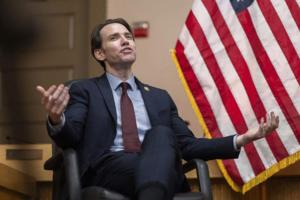
GOP Rep. Kevin Kiley has chosen where to run. It will be a race filled with Democrats
SACRAMENTO, Calif. — Rep. Kevin Kiley has chosen to seek reelection in a left-leaning congressional district where he will face off with a crowded field of Democratic contenders.
In a statement Monday morning, Kiley said he will be running in the 6th Congressional District that spans parts of West Sacramento, Natomas, East Sacramento and ...Read more
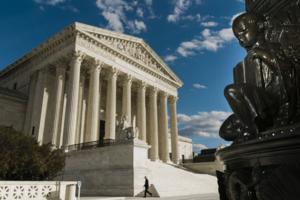
Supreme Court questions denying gun rights to marijuana users in test of the 2nd Amendment
WASHINGTON — The Trump administration on Monday urged the Supreme Court to limit the reach of the Second Amendment and deny gun rights to "habitual" users of drugs, including marijuana.
But most of the justices sounded skeptical. They questioned whether marijuana users are so dangerous they should not have firearms.
They noted too that ...Read more

Kentucky judge facing impeachment calls attempt 'frivolous'
LEXINGTON, Ky. — A Central Kentucky circuit judge facing impeachment says the petition against her should be dismissed for several reasons, including that it would violate Kentucky’s separation of powers and the filing is incomplete.
Fayette Circuit Judge Julie Muth Goodman on Feb. 26 filed a 38-page response with Kentucky’s impeachment ...Read more
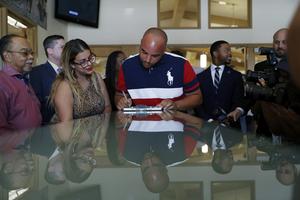
The nation is missing millions of voters due to lack of rights for former felons
If you gathered every American with a prison record into one contiguous territory and admitted it to the union, you would create the 12th-largest state. It would be home to at least 7 million to 8 million people and hold a dozen votes in the Electoral College.
In a close presidential race, this hypothetical state of the formerly ...Read more
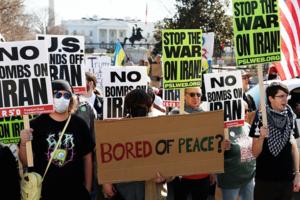
This week: Iran war powers, DHS funding top congressional agenda
WASHINGTON — It’s once again a war powers week on Capitol Hill, with both chambers poised to vote on efforts to halt the U.S. military action against Iran without congressional authorization.
Both the House and Senate were already expected to take up war powers resolutions this week, but since the United States and Israel launched attacks ...Read more
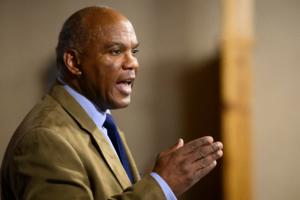
Minnesota Republicans are recalibrating on abortion after past election losses
From the stage of the Minnesota Republican state convention in 2022, Kendall Qualls made his case for governor by offering a specific pledge: He would not pick Michele Tafoya, who had described herself as “pro-choice,” as his running mate.
“All life is precious, I’m a pro-life candidate,” Qualls told the convention delegates in ...Read more
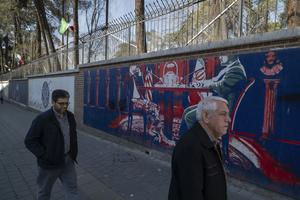
Failure of US-Iran talks was all-too predictable – but Trump could still have stuck with diplomacy over strikes
Three rounds of nuclear talks between the U.S. and Iran failed to persuade President Donald Trump that a solution to the two country’s nuclear impasse lay in diplomacy, rather than military action. A perceived lack of progress in the last of those indirect negotiations on Feb 26, 2026, was enough to prompt Trump to green-light a massive ...Read more
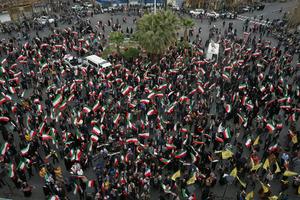
Despite massive US attack and death of ayatollah, regime change in Iran is unlikely
After the largest buildup of U.S. warships and aircraft in the Middle East in decades, American and Israeli military forces launched a massive assault on Iran on Feb. 28, 2026.
President Donald Trump has called the attacks “major combat operations” and has urged regime change in Tehran. Iranian media reported Supreme Leader ...Read more
Popular Stories
- Despite massive US attack and death of ayatollah, regime change in Iran is unlikely
- War Powers votes loom for Congress after US strikes Iran
- Trump's retirement proposal already failed -- under Obama
- OpenAI gives Pentagon AI model access after Anthropic dustup
- Minnesota Republicans are recalibrating on abortion after past election losses




















































